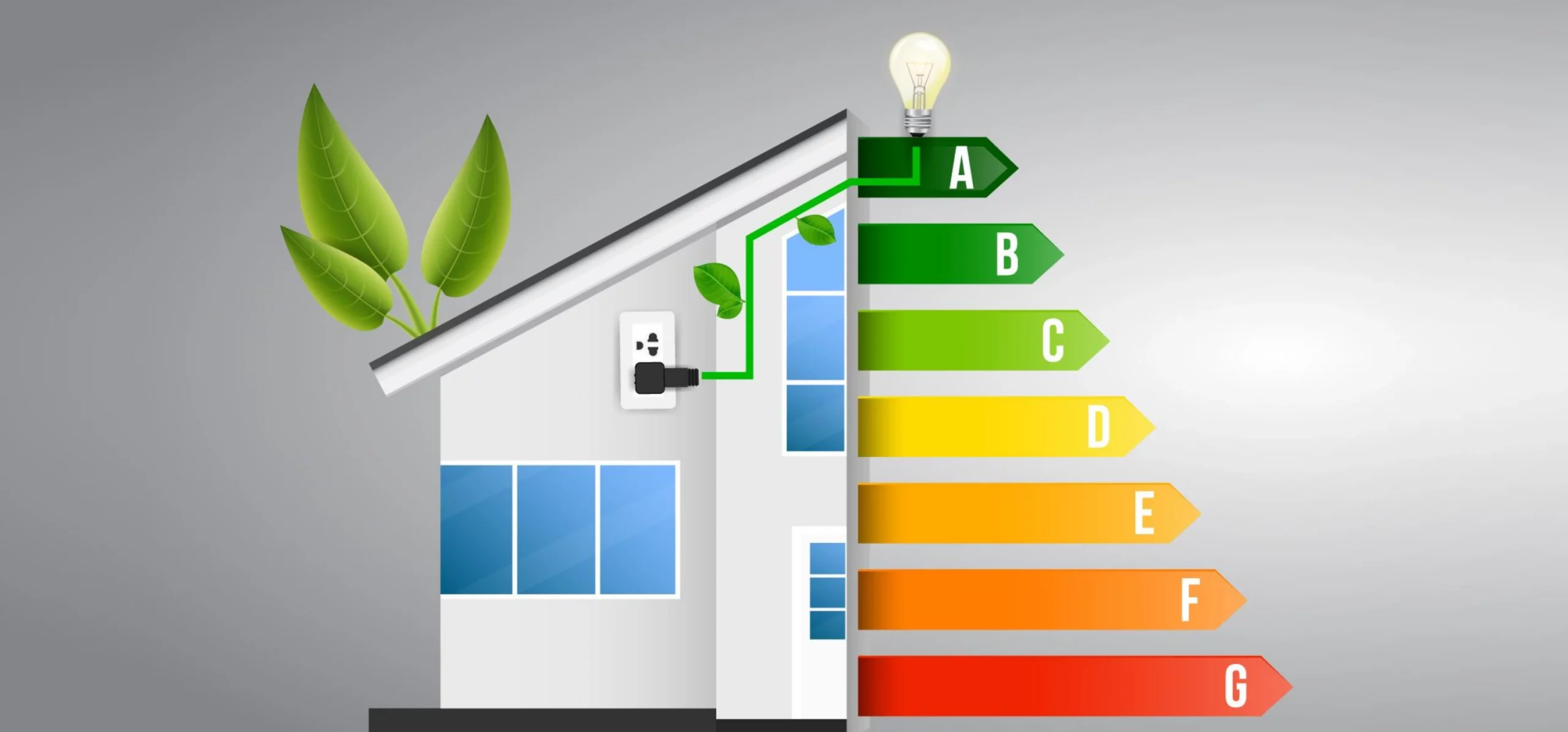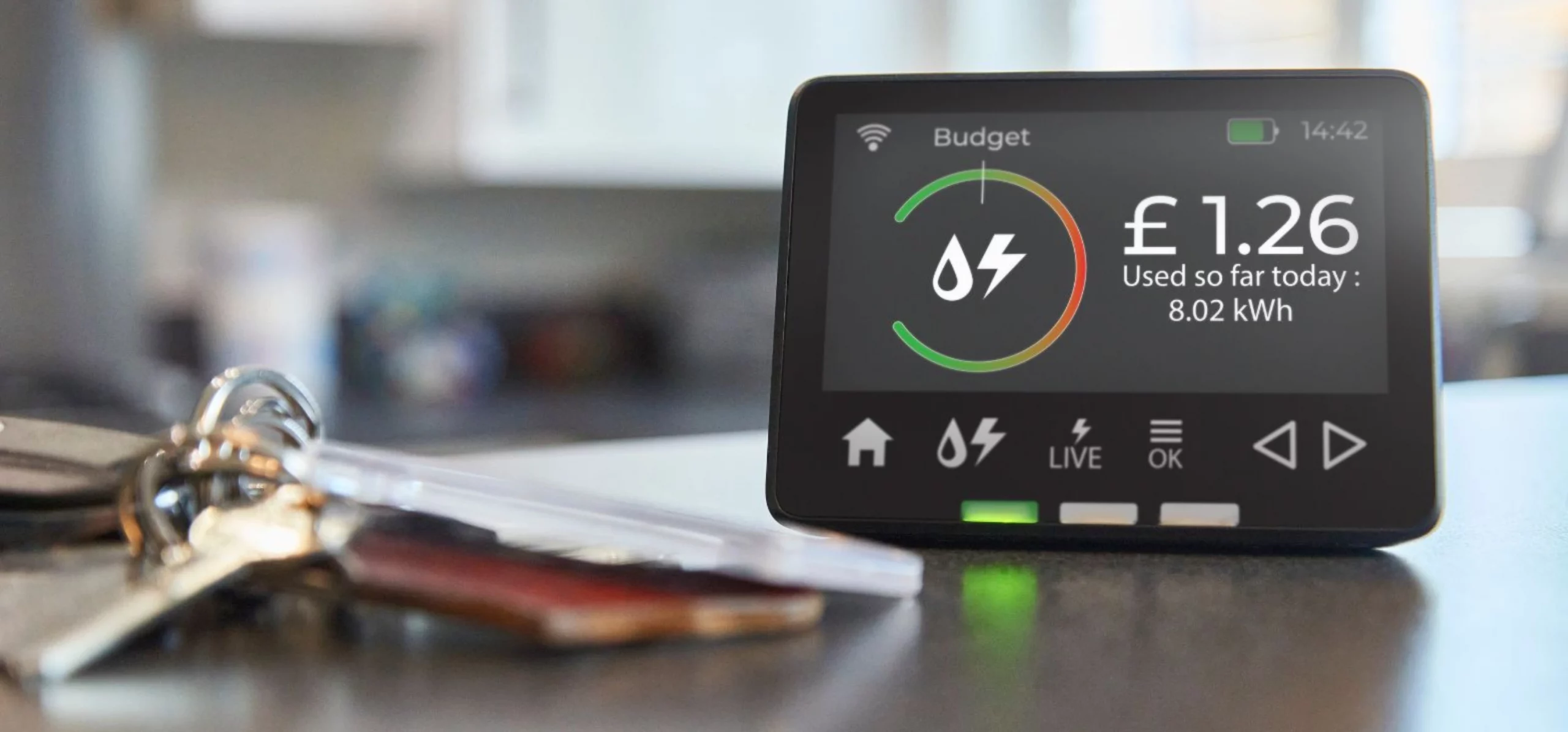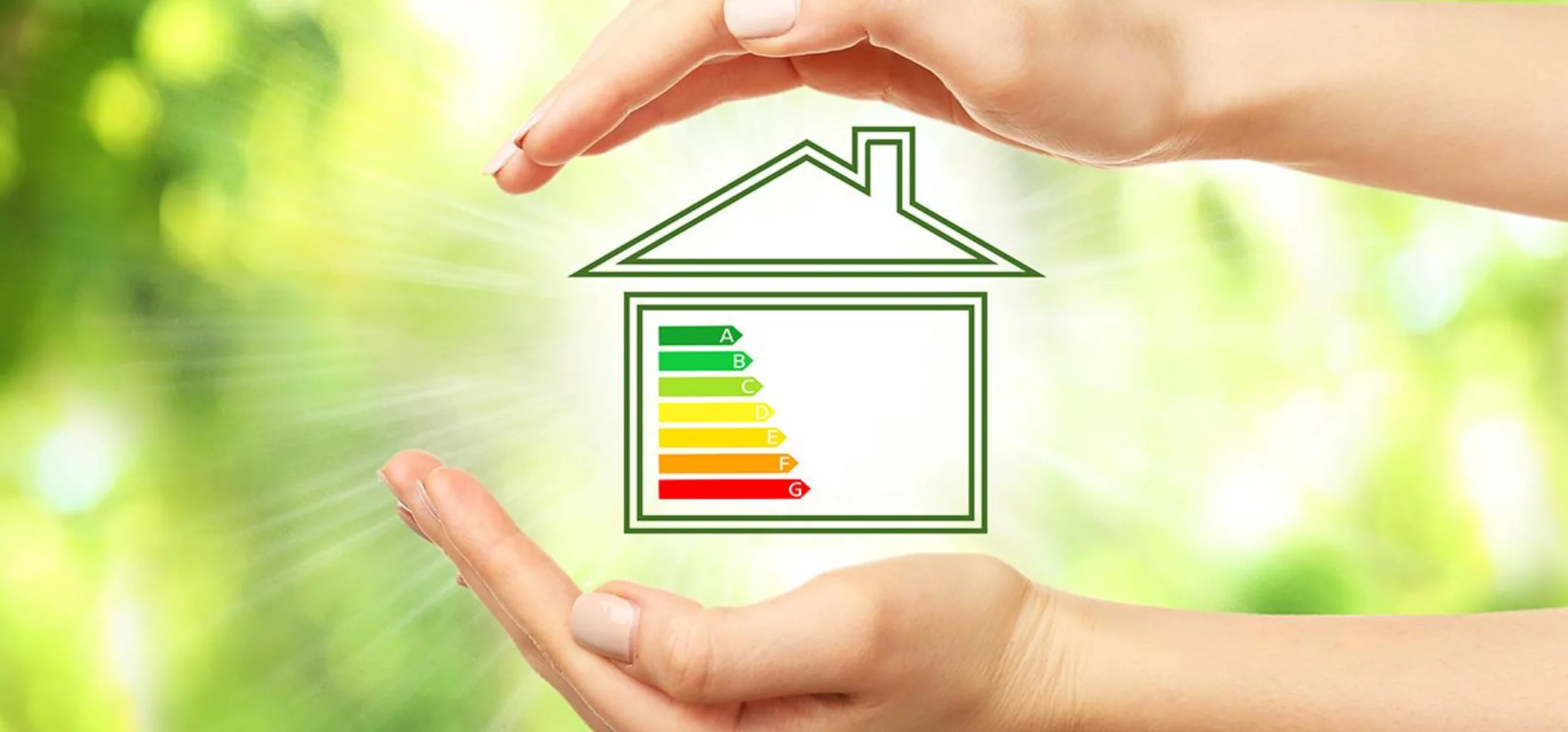Our Energy Efficiency Guide

Improving energy efficiency in your home or business is a great way to reduce costs, conserve resources, and lower your carbon footprint. Here are some actionable tips to increase energy efficiency:
1. Insulate Your Home
• Walls, Attic, and Floors: Proper insulation reduces the need for heating and cooling by keeping warm or cool air inside. Use spray foam, fiberglass, or cellulose insulation, especially in attics and walls.
• Weatherstripping & Caulking: Seal gaps around windows, doors, and vents to prevent drafts and heat loss.
2. Upgrade to Energy-Efficient Appliances
• LED Bulbs: Replace incandescent or CFL bulbs with LED lights, which use less energy and last much longer.
• Energy Star Appliances: When replacing appliances, choose those with an Energy Star label. These are certified to be more efficient than standard models.
• Efficient HVAC: Consider a high-efficiency furnace, heat pump, or air conditioning system. Make sure to replace filters regularly.
3. Smart Thermostat
• A smart thermostat learns your habits and adjusts temperatures based on when you’re home or away. This prevents energy waste from heating or cooling an empty home.
• Set Temperatures Efficiently: In winter, aim for 68°F (20°C) during the day and lower when sleeping or away. In summer, set it to 78°F (26°C).
4. Use Energy-Efficient Windows
• Install double-glazed or low-emissivity windows, which reduce heat loss in winter and heat gain in summer.
• Add thermal curtains to further block drafts and prevent heat transfer.
5. Use Appliances Wisely
• Wash Clothes in Cold Water: Most energy is used by heating water for laundry. Cold water works for most modern detergents.
• Dishwasher Efficiency: Only run dishwashers with full loads, and use the energy-saving mode.
• Air Dry: Use fans or open windows to dry clothes instead of using a tumble dryer, or use the dryer with a moisture sensor to avoid over-drying.

6. Switch to a Renewable Energy Source
• Consider installing solar panels or using green energy plans from your utility company to power your home or business with renewable energy.
• Solar Water Heating: Solar water heaters can be used for water heating in place of traditional electric or gas water heaters.
7. Use Energy-Efficient Landscaping
• Plant trees or install shade structures on the sunny side of your home to keep it cooler in summer, reducing the need for air conditioning.
• Consider xeriscaping (landscaping with drought-tolerant plants) to minimise water usage and energy needed for irrigation.
8. Unplug Devices When Not in Use
• Electronics like televisions, chargers, and computers continue to use energy even when turned off, known as “phantom” or “standby” power.
• Use a power strip and turn it off when devices are not in use, or invest in smart plugs that can be scheduled to cut power when not needed.
9. Regular Maintenance
• Regularly service your HVAC system, clean filters, and check for efficiency issues.
• Have a professional inspect your system annually to keep it running at its best.
10. Energy-Efficient Water Heating
• Tankless Water Heaters: These only heat water when you need it, reducing standby heat loss.
• Insulate Hot Water Pipes: This helps maintain the water temperature, so your water heater doesn’t have to work as hard.
• Lower the Thermostat on the Water Heater: Set it to 120°F (49°C) to save energy without sacrificing comfort.
11. Behavioural Changes
• Turn Off Lights and Electronics when you leave a room.
• Use Ceiling Fans: Ceiling fans can make you feel cooler in the summer and help circulate heat in the winter, allowing you to set your thermostat a bit higher in the summer and lower in the winter.
• Shorten Showers: Reducing hot water use not only saves energy but also reduces water consumption.

12. Consider Energy-Efficient Building Materials
• If you’re renovating, consider using energy-efficient materials like low-emissivity glass, cool roofing materials, or thermal mass (materials that store and release heat) to regulate temperature.
13. Install a Home Energy Monitor
• A home energy monitor tracks your electricity usage and can help you identify which appliances or behaviours are using the most energy. With this data, you can make targeted improvements to reduce consumption.
14. Smart Power Management for Businesses
• If you run a business, consider using energy-efficient lighting and equipment, and implement a strategy for turning off devices after working hours. Investing in LED signage and automated lighting systems can provide significant savings.
These measures, when implemented strategically, can make a huge difference in your energy consumption. Many of them will have long-term savings, and some may even provide tax incentives or rebates, especially if you invest in renewable energy or high-efficiency appliances.
If you have any questions contact Glasgow Gas Engineers today!
POSTED: 10/01/25
